
We all need electrical power and when we lose it feels like the end of time, 840 million people have no access to electricity Trusted Source — SDG Indicators Sustainable Development Goal Indicator. unstats.un.org , according to the United Nations. During the hurricane season, while out on camping trips, or during power outages, electricity generators are a reliable backup plan. But nature can come in the way with snow, rain, or even wind. Of all these natural elements, running a generator in the rain is the most complicated. So, we’ve seen a lot of generator users ask, can a generator run in the rain, during or in anticipation of situations like these.
If you are one of the millions of people who have electricity generators, you must follow several basic rules of use, of course, in addition to common sense and the principle of healthy coexistence. In this article, we’ll talk about the operating principles, types of generator, observing safe use, and give answers to the frequently asked question: can you run a generator in the rain.
Our electrical devices, from the smallest gadgets to the biggest machines, run on electricity. This energy is produced by various industrial processes and techniques which transform other forms of energy into electrical energy. This is delivered by the generators, in the form of constant or variable voltage ready to be used by the consumer.
An electric generator is any device capable of transforming chemical or mechanical energy into electrical energy. On the other hand, a receiver is a device that consumes this energy. Several types of electric generators are available on the market. They can be classified according to their operating principle and the nature of the voltage they deliver.
Among these generators, we can cite for example:
There are small generators, such as the bicycle dynamo Trusted Source Bottle dynamo - Wikipedia A bottle dynamo or sidewall dynamo is a small electrical generator for bicycles employed to power a bicycle’s lights. en.wikipedia.org . It is a small device that produces direct current. Although they are designed for all-weather use, they still don’t work well in the rain. They only generate little electricity that ends in just a flicker of light. However, they are safe for use in the rain.
These are batteries and accumulators, the simplest electric generators. They produce a direct current by the transformation of chemical energy and are used in radios, TVs, and vehicles.
These are formed by alternators for the production of alternating current. Examples are medium-sized generators like the Champion 76533 Portable Generator. They are intended to produce electrical energy of medium power. They find their area of use in powering electrical devices, especially in the event of a power failure or in private areas of the electrical network. Small portable generators that produce 1,000 to 1,500 watts power can be used for powering and charging small devices such as LED bulbs, smartphones, tablets, and laptop, and used for camping. Meanwhile, 3,500 to 5,000 watts conventional generators can be deployed for commercial use or as a backup generator at home.
Large generators are intended for large industrial applications for the production of electricity. They are especially used in power plants using hydraulic, thermal, or nuclear energy as a source of mechanical energy. Using these types of generators in the rain can lead to serious damages or electrocution.
Invented by Van de Graaff, these are reserved for the production of very high voltage static electricity.
Of all these types, the common types used in households, for camping, and even for commercial use are the portable and standby generators. These are the focus of the article.
You should however note that the price of portable gasoline and propane-powered electric generators are relatively low. They are less expensive when compared to stationary generators that use diesel or natural gas, as is the case with the Generac 7043 Standby Generator.
However, standby generators can be used in the rain because they have well-insulated, weatherproof housing and covered from nature. Although inverter generators like the WEN 56200i, for example, also have insulated and covered frames, we do not recommend using the generator in the rain.
The electric generator works thanks to fundamental physical principles: the effect of electromagnetic induction discovered by Faraday. Indeed, the variation of a magnetic induction flux through a copper coil creates an electric current induced through the coil.
It works according to Lenz’s law which relates the variation of flux (induced by movement) to the induced electromotive force, that is to say to the electrical voltage produced. Thus, DC generators are made up of two distinct parts. A fixed part called a stator and a rotating part called a rotor.
The stator constitutes the induced part. Its role is to receive the induction produced by the electromagnetic effect which is generated by the rotational movement of the rotor, to transform it into an electric current.
Below are general questions regarding the operation of generators whether for residential, outdoor, or commercial use.
Portable inverter generators, due to their closed design and insulation, are weatherproof to some extent, especially in drizzles. But it’s not advisable to use the generator in the rain as even drizzles could turn into a serious downpour in seconds. If moisture reaches the windings, it could cause an insulation fault. Open generators, on the other hand, are not resistant to rain and other bad weather conditions. It is however advisable to get a generator cover to be able to use the unit in the rain.
You should note that portable generator manufacturers in general don’t recommend using the devices in the rain. Most manufacturers don’t recommend using portable generators in wet conditions like rain or snow, especially if the wires are not routed underground, in electrical insulation materials.
Closed generators such as standby generators are resistant to rain and other severe weather conditions. The best generators such as from Generac, for example, have well-insulated, weatherproof covers and frames. But you still have to be careful. Large quantities of water must not enter the top and reach the alternator, otherwise, the alternator will not work.
The only type of generator recommended to be used indoors are battery generators because they do not use gas or produce fumes. However, gasoline, diesel, and propane generators should in no case be used indoors, in the garage, in enclosed space, or near places where there are humans. A generator set must be at least 20 feet from a house or humans. These generators produce carbon monoxide, chemicals, tagged to be “silent killers.”
Closed units are resistant to rain and other harsh weather conditions. However, you need to make sure that a large amount of water does not get into the case and get to the device as it will get damaged. Do not touch the unit when it is wet. Moisture is a good conductor of electricity, always be very careful. Luckily, in some models, whenever water reaches the internal components, the engine will stop automatically.
If the generator gets wet, you have to wait for it to dry off before use. Try as far as possible to protect the generator from moisture using a tarpaulin or another water-repellent material. Installing a shed or a generator cover is the best solution to using the unit in the rain. Whatever solution you use while running the unit in the rain, note that the exhaust must not be blocked.
Improper use of a generator can leave you in a delicate or, even, deadly situation. Electricity (from the generator set) and water present a serious hazard to the user and the generator set itself. So, the answer to the question: can a generator run in the rain is simple. If the generator is turned on and gets wet, the water can cause significant internal damage to the engine and alternator. Do not use the generator in rain or wet conditions unless you can keep it completely dry. To protect the unit from moisture, operate it on a dry platform or surface and under a shed or canopy-like structure that is not enclosed. Also, do not touch a running generator except your hands are completely dry.
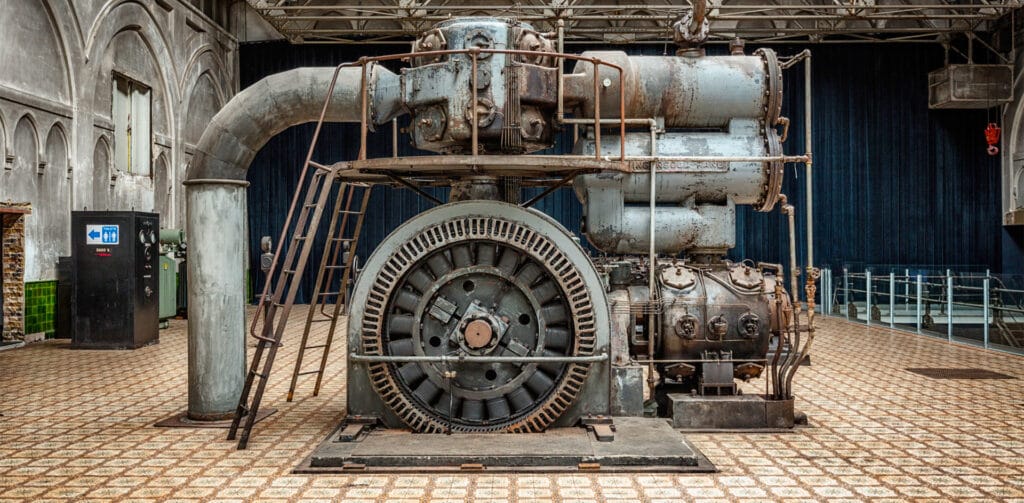
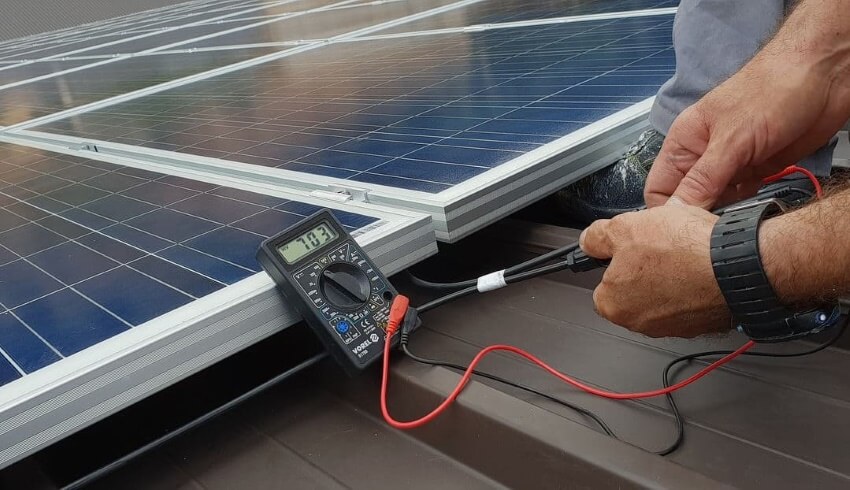
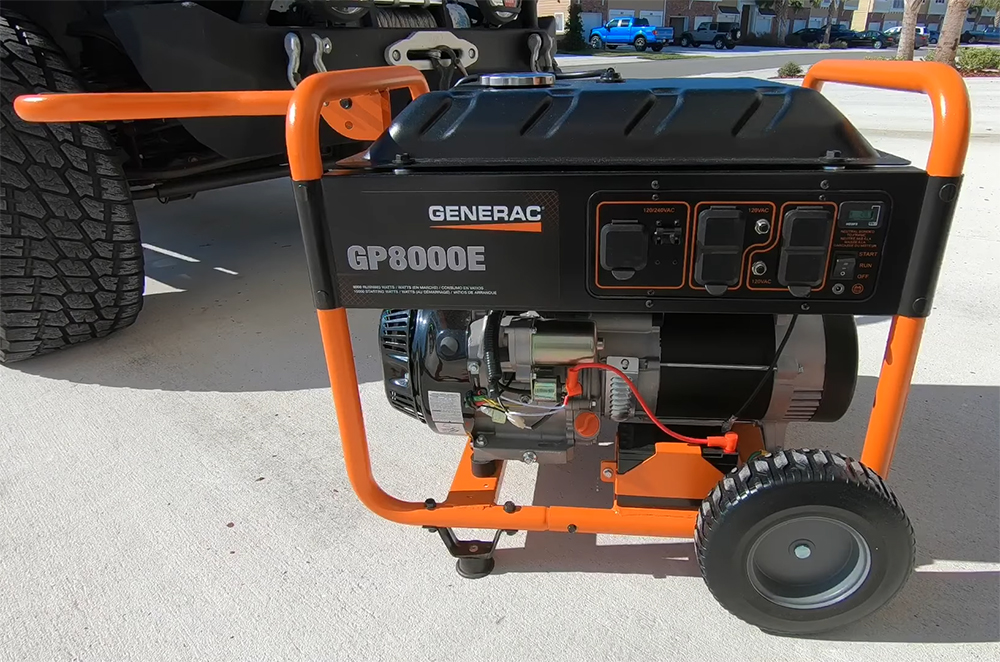
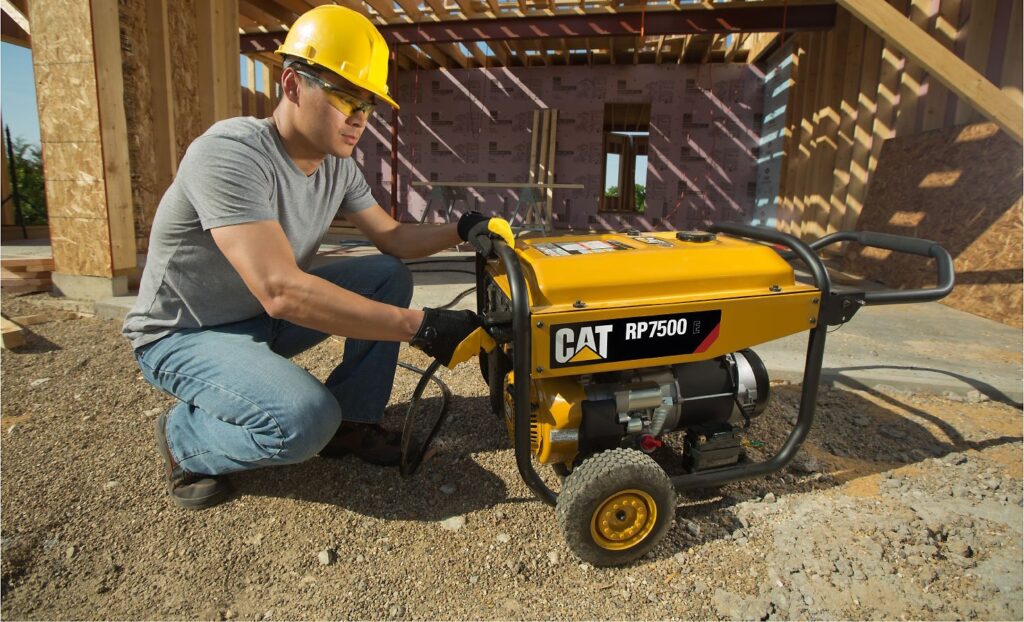

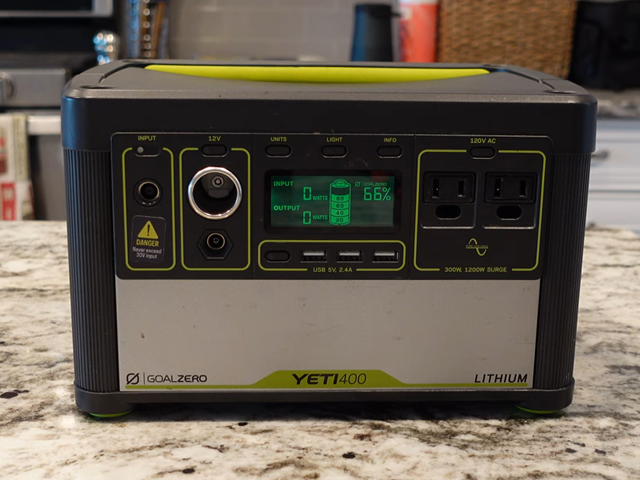
What precautions should I take when using a portable generator in the rain?
Do not use the gas-powered generator. The fumes are very toxic and can be fatal. They are more lethal than carbon monoxide poisoning, because the fumes are heavy.
If you want to use a generator outside in the rain, make sure that it is UL approved and meets safety standards. If it doesn’t, then there was no safety testing done and the voltage output has not been determined. You should be careful when using this type of setup because it can generate more than 120 volts of electricity.
Have you ever tried to run a gas generator on a rainy day?
Yes. A few days ago, I ran my gas generator when it was raining. The generator has a problem with making enough compression to start the engine. If there is condensation in the fuel injector pump, it will also affect how well the engine starts and runs its first few minutes or so before cycling properly.
Generators are for outdoors. If it rains, the generator will get wet all around and then might break. It also might not work if water gets inside of the engine. If you take out the spark plugs, there is no way for electricity to move through the wires, so it won’t work.
I’ve heard that invertor generators will short out if they’re running in wet weather because water and electricity don’t mix. True or not?
An invertor generator is not designed to be wet. If it gets wet, the inner parts might get ruined.
Do you think it is safe to run a generator in the rain before running out of fuel?
Most generators are a motor with electricity flowing through it. Running your generator in the rain is dangerous because there could be an electric arc from the water, and ground water could damage the electrical equipment.